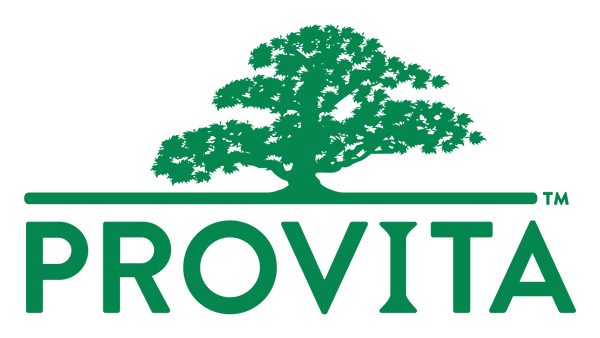The anti-aging industry has become one of the largest industries in medicine today. The primary focus of reducing aging is using topical agents such as moisturizes or interventions such as Botox.
But...what is not talked about is how we can slow our aging process from the inside out.
While utilizing topical agents to reduce the signs of aging is effective, our primary focus should be supporting our body at the cellular level to prevent aging as a whole. The choices we make can influence how are our bodies age – we can either speed up or slow down the process. Choices that increase aging include such smoking, drinking alcohol, poor food choices to a lack of sleep and exercise. It has become more widely known that one of the main causes of premature aging is altering gene expression by way of oxidative damage. And in order to combat oxidative damage we want to use anti-oxidants.
Have you ever heard the expression “Genetics loads the gun but the environment pulls the trigger”?
What this implies is while we may be genetically susceptible to certain illness or disease; it is the environment that ultimately plays deciding factor of our health outcomes. Knowing this, our aging process is largely influenced by our environment.
A study on Genetics of Longevity showed that longevity (or rather anti-aging) is the result of a combination of an optimal performance of the immune system and an overriding of anti-inflammatory genetic sequences. What this study illustrated was that the environment does in fact influence our genetics and play a role in aging and longevity.
So what can we do?
How do we support our body to reduce epigenetic changes? Or rather slow down the aging process to support our body so it ages gracefully in a world with toxic exposure?
PTEROSTILBENE
One area I have turned to lately is looking at the antioxidant Pterostilbene. In-vitro studies have shown that pterostilbene promotes PPAR-alpha and may be an effective lipid-reducer, even more effective than resveratrol, its cousin, for degenerative conditions. In one study, it showed the blood markers of cellular stress and inflammation were lowered by pterostilbene via PPAR-alpha expression. Knowing this, research findings indicate that regular intakes of pterostilbene via supplementation can be a potent modulator of cognition, memory, cellular stress, and aging due to increased PPAR-alpha expression.
Pterostilbene action as an antioxidant has also been found to activate AMPK (AMP-activated protein kinase) that regulates energy metabolism, and by activating Sirtuin 1. Sirtuin 1 is NAD dependent, therefore increasing NAD+ levels in our bodies can enhance the effect of pterostilbene.
NAD & NICOTINAMIDE RIBOSIDE
My next go-to in helping anti-aging is increasing NAD+. How we do this is by taking the precursor, Nicotinamide Riboside and then of course Pterostilbene which has been shown to increase NAD+. Why do we want to increase NAD+? Because we want to support the production of ATP, which is an energy molecule made by our mitochondria. ATP is used in multiple pathways in our body and when it declines, this affects a whole host of pathways and ultimately increases the aging process. Overall, elevation of NAD+ levels may slow or even reverse the some aspects of aging and also delay the progression of age-related diseases.
The supplements I choose to use in my office to help slow the aging process and support your body at the cellular level is using in combination the products Ptero Gene and Nadogen from PROVITA. They work synergistically to increase NAD+ by way of providing pterostilbene and NAD+ precursors.
REFERENCES:
- Rimando AM, Nagmani R, Feller DR, Yokoyama W. Pterostilbene, a new agonist for the peroxisome proliferator-activated receptor alpha-isoform, lowers plasma lipoproteins and cholesterol in hypercholesterolemic hamsters. J Agric Food Chem. 2005;53(9):3403-3407.
- Gene-Environment Interactions in the Development of Complex Disease Phenotypes https://www.ncbi.nlm.nih.gov/pmc/articles/PMC3684407/
- Olden K. Opportunities in environmental health science research. Environ Health Perspect. 1993;101(1):6–7. [PMC free article] [PubMed] [Google Scholar]
- Balistreri C, Candore G, Accardi G, et al. Genetics of longevity data from the studies on Sicilian centenarians. Immun Ageing. 2012;9(1):8.
- Berger J, Moller DE. The mechanisms of action of PPARs. Annu Rev Med. 2002;53:409-35.
- Stienstra R, Duval C, Müller M, Kersten S. PPARs, Obesity, and Inflammation. PPAR Res. 2007;2007:95974.
- Youssef J, Badr MZ. PPARs: History and advances. Methods Mol Biol. 2013;952:1-6.
- Wakeling LA, Ions LJ, Ford D. Could Sirt1-mediated epigenetic effects contribute to the longevity response to dietary restriction and be mimicked by other dietary interventions? Age (Dordr). 2009;31(4):327-341.
- Ford D, Ions LJ, Alatawi F, Wakeling LA. The potential role of epigenetic responses to diet in ageing. Proc Nutr Soc. 2011;70(3):374-384.
About the author
Dr. Taylor Bean is a Naturopathic Doctor and owner of TaylorMade Wellness in Salmon Arm, BC. She began her career working overseas In Singapore for two years, to now 6 years working in Canada, she has been able to blend Eastern and Western approaches from a clinical and cultural perspective. As a mother of two, she has a passion working with pregnant mothers achieve a healthy pregnancy and smooth labor along with working with children to help them thrive.

DISCLAIMER:
The statements on this website are informational only and shall not to be construed as medical advice to diagnose, prevent or treat any medical condition. Please consult your healthcare practitioner before taking natural supplements, especially if you have a serious health condition and you are on medication for it.







